 Wednesday. Doth he feel it? no. Doth he hear it? no. 'Tis insensible, then? Yea, to the dead. But will it not live with the living? no. Why? detraction will not suffer it. Therefore I'll none of • it. Honour is a mere scutcheon : and so ends my catechism. Wednesday. Doth he feel it? no. Doth he hear it? no. 'Tis insensible, then? Yea, to the dead. But will it not live with the living? no. Why? detraction will not suffer it. Therefore I'll none of • it. Honour is a mere scutcheon : and so ends my catechism.  National Review - Page 211861Full view National Review - Page 211861Full view - About this book
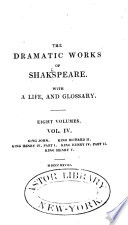 | William Shakespeare - 1828 - 346 pages
...No. Honour hath no skill in surgery then? No. What is honour { A word. What is in that word, honour? What is that honour? Air. A trim reckoning!— Who hath it? He that died o'Wednesday. Doth he feel it? No. Doth he hear it? No. Is it insensible then ? Yea, to the dead. But... | |
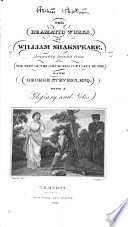 | William Shakespeare, George Steevens - 1829 - 506 pages
...then ? No. What is honour ? A word. What is in that word, honour ? What i» M) Fjhibited in article«. that honour? Air. A trim reckoning ! — Who hath it? He that died o' Wednesday. Doth he (eel it ? No. Doth he hear it ? No. Is it insensible then ? Did hear a challenge urg'd more modestly,... | |
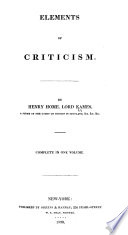 | Lord Henry Home Kames - 1830 - 492 pages
...Honour ? A word — What is that word Itonour f Air ; a trim reckoning. Who hath it ? He that died a Wednesday. Doth he feel it ? No. Doth he hear it ? No. Is it insensible then 7 Yea, to the dead. But will it not live with the living ? No. Why? Detraction will not suffer it.... | |
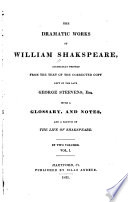 | William Shakespeare - 1831 - 500 pages
...word, honour 7 '• ; (4) Exhibited in article!. that honour? Air. A trim reckoning !— Who hath h? He that died o' Wednesday. Doth he feel it ? No. Doth he hear it ? No. It it ins nsible then ? Yea, to the dead. But will it not live with the living? No. Why? Detraction... | |
 | William Shakespeare - 1832 - 1022 pages
...hath It t He that died o' Wednesday. Doth he feel Ut No. Doth he hear UI No. U it insensible then t Yea, to the dead. But will It not live with the living! No. Why 1 Detraction will not suffer it :— therefore I'li none of it : Honour Is a mere scutcheon, and so... | |
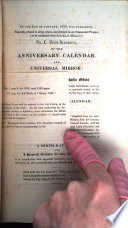 | Anniversary calendar - 1832 - 548 pages
...Laz. Spallanzani, 1 799. d. Pavia. Immanuel Kant, 1804. What is in that word, honour? Who hath if! He that died o' Wednesday. Doth he feel it! No. Doth he hear il? No. Is it insensible, then ? Yea, to the dead. But will it not live with the living? No. Why? Detraction... | |
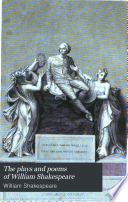 | William Shakespeare - 1833 - 1140 pages
...No. Honour hath no skill in surgery then? No. What is honour? A word. What is in that word, honour? ase thee with my answer. Ban o'Wednesday. l)oth he feel it? No. Doth he hear it? No. Is it insensible then? Yea, to the dead. But... | |
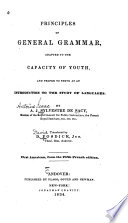 | Antoine Isaac Silvestre de Sacy - 1834 - 172 pages
...misi" must be supplied as Antecedent to " legatos." So also these lines. "What is that honour? Air. n trim reckoning ! Who hath it? He that died o' Wednesday. Doth he fuel it ? Jfo! Doth he hear it? Not Is it insensible, then ? Yea ! to the dead," etc. SHAKSPEARE. These... | |
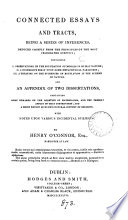 | Henry O'CONNOR (Barrister-at-Law) - 1837 - 376 pages
...maintained that inference. " What," says this philosopher, " is honour ?—a word. What is that word honour ? Air. A trim reckoning ! Who hath it ? He...it not live with the living ? No. Why ? Detraction [according to his theory he might have said abstraction] will not suffer it. Therefore I'll none of... | |
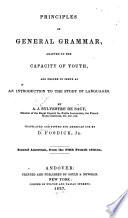 | Antoine Isaac Silvestre de Sacy - 1837 - 172 pages
...8, lines 143-4.) The word "mm" must be supplied as Antecedent to " legates." So also these lines : "What is that honour? Air! a trim reckoning ! Who...? No! Is it insensible, then? Yea! to the dead— " etc. SHAKSPEARI. These two examples contain a great many kinds of Ellipsis ; but I confine myself... | |
| |